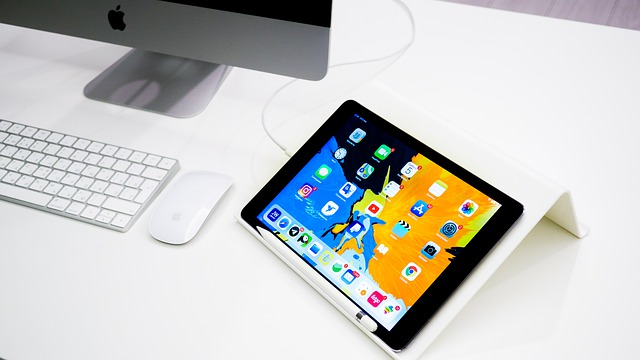Apple Expands Product Line-Up But Faces Supply Issues

Earlier last week, Apple (Nasdaq: AAPL) announced its second-quarter results that surpassed market expectations. All of Apple’s segments, except the iPad, reported year-on-year growth for the second consecutive quarter this year. In the coming quarters, Apple does not appear to be constrained by market demand, but by market supply.
Apple’s Financials
Apple’s second-quarter revenues grew 9% to $97.3 billion, significantly ahead of the market’s forecast of $94.79 billion. EPS grew 8.6% over the quarter to $1.52, surpassing the Street’s forecast of $1.43.
By segment, iPhone revenues grew 5.5% to $50.57 billion. Mac sales grew 14.6% to $10.44 billion and iPad sales fell 2% to $7.6 billion. Revenues from Wearables grew 12.4% to $8.81 billion. The services segment revenues grew 17.2% to $19.82 billion.
Apple did not provide any forecast for the current quarter. The market estimates revenues of $85.48 billion and an EPS for the quarter of $1.24. For the year, the market expects revenues of $397.08 billion and an EPS of $6.15.
Analysts believe that Apple continues to see strong demand trends suggesting year-on-year growth in the coming quarter. However, macro conditions such as COVID lockdowns, coupled with supply chain headwinds are expected to negatively impact its production. Incremental headwinds from Russia won’t be very helpful either.
Apple’s Product Upgrades
During the quarter, Apple continued to announce significant new product upgrades and enhancements. It expanded its iPhone offerings by adding two green finishes to the iPhone 13 lineup and introducing the new 5G-enabled iPhone SE, which is meant for users who want a smaller iPhone and a greater value for money. Despite challenging compares reported a year ago, iPhone revenues grew 5%.
Wearables, home, and accessories are another focus area for the company with revenues growing 12%. Apple Watch Series 7, Apple Watch SE, and HomePod Mini continue to gain market share. Apple attributes its growing sales to the seamless integration of hardware, software, and services for these products.
Within Apple Services, its TV+ content saw strong market recognition. CODA won the Academy Award for Best Picture, making Apple TV+ the first streaming service to win in this category. Within two years since the launch of Apple TV+, its shows and movies have earned over 240 awards and 960 nominations. It continues to add original content in the form of TV series such as Severance, WeCrashed, and Pachinko and added sports content through Friday Night Baseball.
Fitness+ is helping users get better control of their health. Apple recently introduced a postpartum routine designed by mothers for mothers, and with Apple Heart and Movement Study, it is helping researchers glean insights into cardiovascular fitness.
Recently, Apple also announced the launch of M1 Ultra, its new chip that combines the die of two M1 chips to create a system on a chip (SoC) with exceptional levels of performance and capabilities. M1 Ultra delivers breathtaking computing power to Apple’s new Mac Studio while continuing to maintain industry-leading performance per watt. The chip can be configured with up to 128GB of high-bandwidth, low-latency unified memory that can be accessed by the 20-core CPU, 64-core GPU, and 32-core Neural Engine, providing customers with astonishing performance for compiling code, huge 3D environments that were previously impossible to render, and the ability to transcode video to ProRes up to 5.6x faster than with a 28-core Mac Pro with Afterburner 1.
Despite the growing offerings, Apple is being hurt by the global market conditions. Its pull out from Russia, following the Russian-Ukraine war, is expected to hurt its sales by $1.1 billion annually. Apple did not operate any physical stores in Russia, but its products were no longer available for delivery or purchase in Russia on its online storefront. It also removed Russian state-controlled outlets RT News and Sputnik News from its App Store in countries around the world except for Russia.
Additionally, the current pandemic conditions in China are adding to its supply chain worries. China currently has very strict Covid-19 control measures that are resulting in suspended activities in the country. Apple’s second-largest Chinese assembly plant, Pegatron Corp, recently suspended production at key factories in Shanghai and nearby Kunshan because of these policies. China’s policies have resulted in jammed highways and ports, stranded workers, and left factories awaiting government approval to reopen.
Its stock is trading at $157.65 with a market capitalization of $2.6 trillion. It touched a 52-week high of $182.94 in December last year. The stock was trading at a 52-week low of $122.25 in May last year.
Disclosure: All investors should make their own assessments based on their own research, informed interpretations, and risk appetite. This article expresses my own opinions based on my own research ...
more


